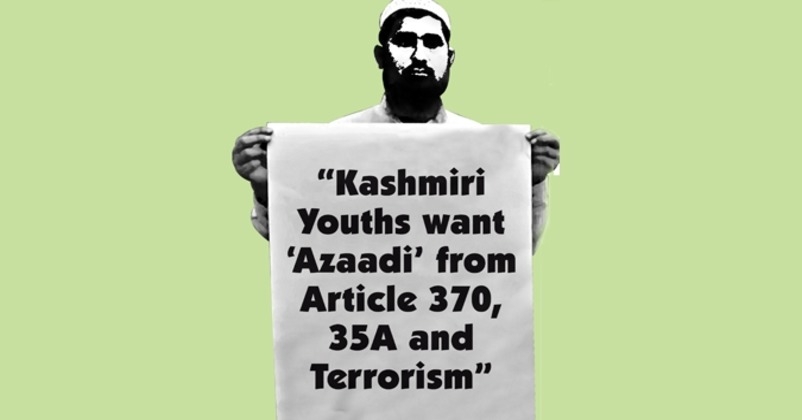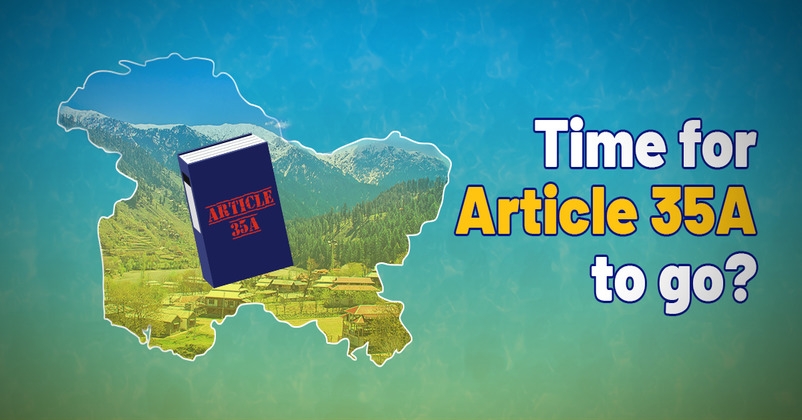Article 35A: An Unconstitutional Instrument that promotes Subversion and Discrimination
| 08-May-2019 |

In 1954, a presidential order was issued that amended the constitution of India and a new provision i.e. Article 35A was added to the constitution. The clandestine nature of the insertion of this Article can be gauged from the fact that this Article is not located either between Article 35 and Article 36 of the constitution or in the list of constitutional amendments but it is available in the appendix. Therefore, political high-handedness cannot be denied in the insertion of this controversial Article in the constitution. Essentially, the fraudulent nature of insertion of this Article resulted that many books on the Constitution of India do not mention this Article in them. Surprisingly, this provision remained in force since 1954 and perhaps, the majority of the Indians did not know about the very existence of this provision unless it was challenged in the Supreme Court in 2014. Therefore, attempts have now been made to create the myth in defence of this provision.
The myth, which is vehemently quoted, is that Article 370 (1) (d) gives power to the president of India to promulgate any order in respect of Jammu and Kashmir with the concurrence of the State Government and he used the same powers while issuing order in 1954 to add Article 35A in the constitution. But the reality is that the president does not have such powers to either add or delete any provision in the Constitution of India until the same is passed by both the houses of parliament. It is clearly mentioned in the constitution of India that only parliament has the power, under Article 368, to either delete or add any provision in the constitution of the country.
Article 35A not only discriminates between the permanent residents of Jammu and Kashmir and the rest of the Indian citizens but even the people living in the state. Be it Women, Dalits, OBCs, West Pakistan Refugees and Gorkhas of the state all became the victims of oppression and discrimination through one stroke of the president in 1954. In the state of Jammu and Kashmir a woman cannot marry any person, who is an Indian citizen but not the permanent resident of the state, otherwise her spouse and children would not get the Permanent Resident Certificate (PRC) whereas the discriminatory provision allows a man to marry any Indian citizen and the consequent extension of PRC to his spouse and children, which is clearly against the doctrine of gender justice. A class of Dalits was brought in the state in 1957, for doing the job of a sweeper, from Punjab on the promise that PRC would be relaxed for them. But it is being ensured that even their later generations would not progress.
Therefore, their children were made eligible for the job of sweeper only in the state irrespective of their qualification. Surprisingly, it seems that they have now been perceived as outcastes and the violation of their rights is considered normal, in Jammu and Kashmir, against the notion of an inclusive society. The West Pakistan Refugees (WPR), who migrated in the state in 1947 in the hope of a better future in a secular country, have not been given PRC, as a result, they cannot vote in the assembly and local bodies’ elections and avail other benefits that a PRC gets in the state. Majority of these WPR are SCs and OBCs. The same is the case with Gorkhas, whose generations have fought for the state and the country but they remain at the bay in the state. Adding to their agony, they (WPR and Gorkhas) have not been given the piece of land, which they can call their own.

Essentially, the president of India overstepped his authority, in 1954 and added 35A Article in the constitution without getting it passed from the parliament. By doing this, he violated the same constitution which he swore to preserve, protect and defend under Article 60. But I hope that the Supreme Court of India will do justice and strike down this Article from the Constitution of India and deliver justice to the citizens of this country, particularly the people residing in the state.
